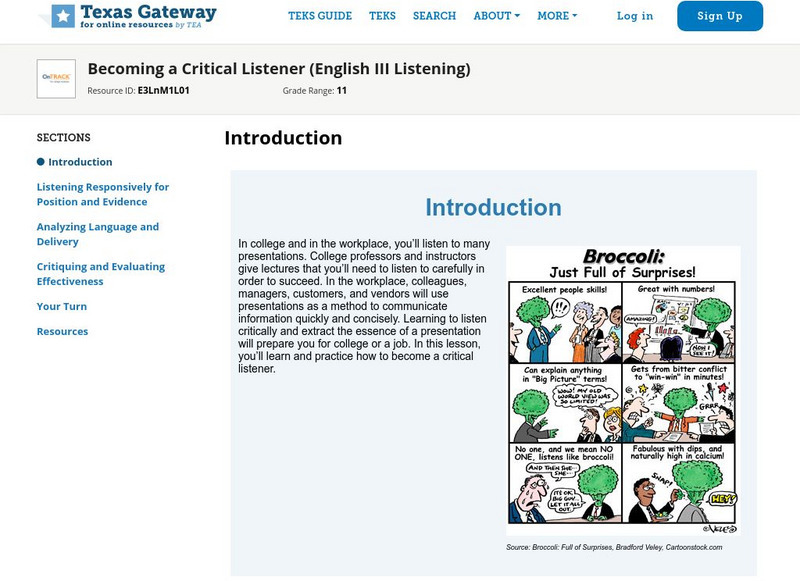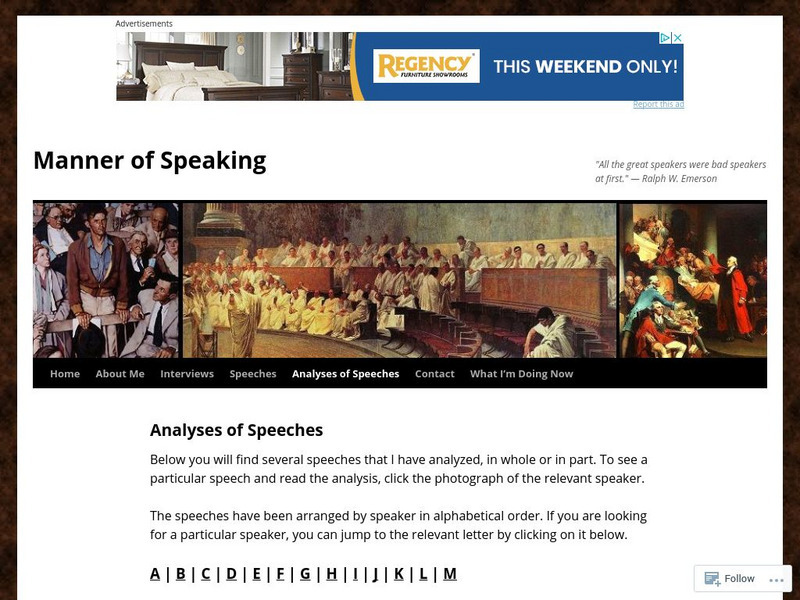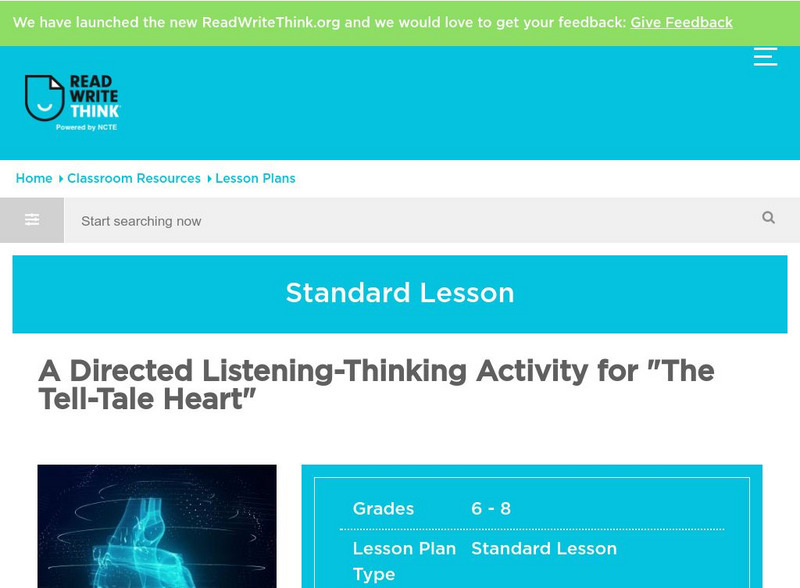Curated OER
Critical Listening: Music Vocabulary
The school band or orchestra analyzes their own performance after exploring musical terminology. They listen to a classical piece and describe it using only words. They look up musical terminology and then use those words to compare and...
Pennsylvania Department of Education
Speaking Skills
Students listen to The Hungry Caterpillar by Eric Carle and use a teacher created puppet for a listening activity. For this Hungry Caterpillar lesson, students recall the order of events in the story with the puppet and cards of...
Pennsylvania Department of Education
Stories? Information? What's the Difference?
Students listen to a power point presentation to distinguish between fiction and nonfiction text. In this what's the difference lesson, students identify fact from opinion within a text. Students listen critically and respond to text.
Texas Education Agency
Texas Gateway: Becoming a Critical Listener (English Iii Listening)
Learning to listen critically and extract the essence of a presentation will prepare you for college or a job. In this lesson, you'll learn and practice how to become a critical listener.
CPALMS
Cpalms: Lafs.8.sl.1.3
Choose from among lesson plans, assessments, and original student tutorials to teach how to analyze a speaker's arguments.
TED Talks
Ted: Ted Ed: A 40 Year Plan for Energy
In this intimate talk filmed at TED's offices, energy innovator Amory Lovins shows how to get the US off oil and coal by 2050, $5 trillion cheaper, with no Act of Congress, led by business for profit. The key is integrating all four...
Other
Manner of Speaking: Analyses of Speeches
This is a collection of videos of speeches by well-known personalities and celebrities. Each one is accompanied by an analysis of the speech's structure, devices, and arguments. Some videos are excerpts from movies, some are from...
ReadWriteThink
Read Write Think: A Directed Listening Thinking Activity
Lesson which requires students to listen to The Tell-Tale Heart read aloud, answer prediction questions during the reading, and write written responses after. Excellent for beginning a mystery unit.
ReadWriteThink
Read Write Think: The History Behind Song Lyrics
Critical listening, research and historical information are all part of the material in this multi-disciplinary lesson.
Other
Life Long Earning: Communication Skills
Brief definitions of communication skills terms along with examples of how a student might combine these skills into projects and real-world applications.
Other
How to Analyze a Speech
An interesting approach to how to analyze a speech. Presents a rhetorical pentangle as well as a rhetorical triangle, where each of the vertices represents an item to analyze. There is also an outline of the different areas to examine in...
BBC
Bbc Bitesize: Listening to Others and Building on Arguments
This resource explains how to listen carefully to someone to identify the points they are trying to make and how to use those points to add additional information to the discussion. Includes sentence starters to help frame what you want...
Texas Education Agency
Texas Gateway: Kids in Motion: Marvin K. Mooney Activity
In this activity, students get to combine the world of literacy and physical movement! As the teacher reads the book Marvin K. Mooney Will You Please Go Now, by Dr. Seuss, students listen carefully and safely jump up out of their chairs...
Other
Middle Web: ccss.ela literacy.sl.6.3: Argument/claim [Pdf]
A graphic organizer for laying out a speaker's argument or claim and the reasons or evidence given, both supported and unsupported.















![Middle Web: ccss.ela literacy.sl.6.3: Argument/claim [Pdf] Graphic Middle Web: ccss.ela literacy.sl.6.3: Argument/claim [Pdf] Graphic](https://d15y2dacu3jp90.cloudfront.net/images/attachment_defaults/resource/large/FPO-knovation.png)